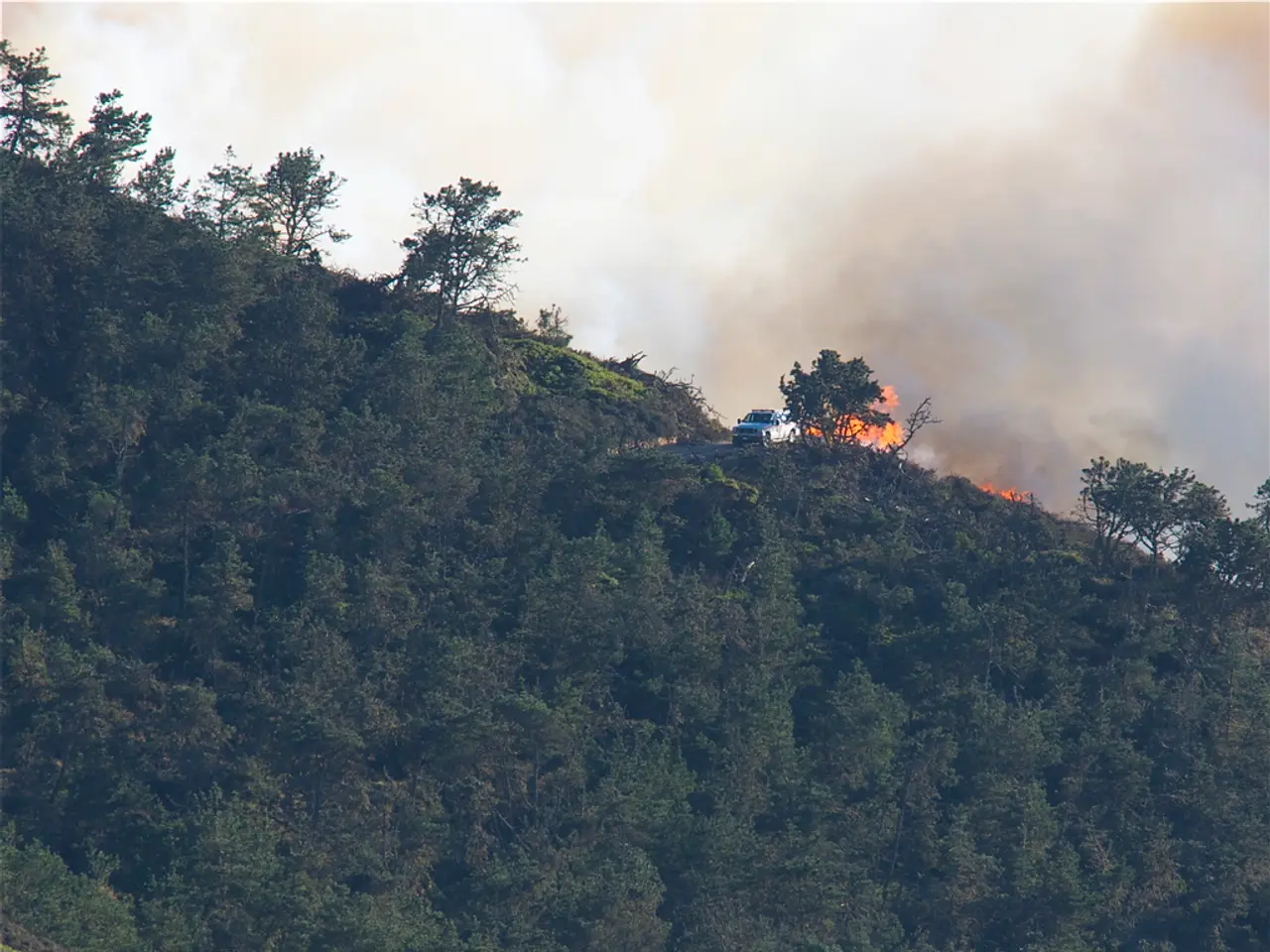Harmful Effects of Wildfire Smoke on the Human Body Unveiled
Wildfire smoke, a complex mixture of gases, air pollutants, water vapor, and fine particulate matter (PM2.5), has been a growing concern for public health. A series of studies published in prominent scientific journals have shed light on the potential long-term health effects of this smoke.
One of the most significant findings is the link between long-term exposure to wildfire-related PM2.5 and an increased risk of dementia. According to a study published in JAMA Neurology in 2024, every 1 microgram per cubic meter increase in the three-year average of wildfire PM2.5 raised the odds of a dementia diagnosis by 18%. This risk is significantly higher than the 1% greater risk associated with the same increase in PM2.5 from non-wildfire sources.
The cardiovascular system is another area of concern. Research published in JAMA Network Open in April 2022 found that wildfire smoke correlated with a significant spike in mental health emergency department visits for up to seven days post-exposure. Furthermore, there is evidence suggesting that long-term exposure to wildfire smoke can lead to increased risks of various cardiorespiratory conditions, including heart disease, stroke, high blood pressure, pneumonia, chronic lung disease, and asthma.
Moreover, recent studies suggest that wildfire smoke carries microbial and fungal pathogens, some of which are known to cause infections and respiratory illnesses. A 2023 study found evidence to suggest that wildfire smoke could raise infection risk among the general population, associating California wildfires with an 18% to 22% increase in invasive fungal infections such as valley fever.
The most hazardous component of wildfire smoke is PM2.5, which can penetrate deep inside the lungs and cause damage to the respiratory system. To reduce exposure, limiting the length and intensity of time spent outdoors, wearing an N95 mask or a P100, and keeping windows and doors shut are recommended. If you don't have an HVAC system, you can purchase a portable air filter or build your own using a furnace filter and a box fan.
While the long-term effects of wildfire smoke on brain and mental health are not as well-documented as those on cardiovascular health, exposure to pollutants can have broad systemic impacts that may influence mental health and brain function indirectly. Exposure to wildfires and smoke can cause significant stress and anxiety, particularly in affected communities, which can lead to mental health issues such as post-traumatic stress disorder (PTSD) and depression. The psychological impact of wildfires extends beyond individual health effects, affecting community well-being and cohesion over time.
As wildfire season becomes increasingly impactful, taking steps to protect yourself and your family from smoke has never been more critical. It is essential to stay informed about local air quality conditions and heed advisories when necessary. By understanding the potential long-term health impacts of wildfire smoke, we can take proactive measures to safeguard our health and well-being.
- The link between long-term exposure to wildfire smoke and an increased risk of dementia has been identified, with each 1 microgram per cubic meter increase in the three-year average of wildfire PM2.5 raising the odds of a dementia diagnosis by 18%.
- Exposure to wildfire smoke can lead to a significant spike in mental health emergency department visits for up to seven days post-exposure, according to research published in JAMA Network Open in April 2022.
- Wildfire smoke carries microbial and fungal pathogens, some of which are known to cause infections and respiratory illnesses, as suggested by a 2023 study.
- To reduce exposure to wildfire smoke, it's recommended to limit the length and intensity of time spent outdoors, wear an N95 mask or a P100, and keep windows and doors shut. Additionally, during wildfire season, staying informed about local air quality conditions and heeding advisories is crucial.
- While the long-term effects of wildfire smoke on brain and mental health are not as well-documented as those on cardiovascular health, exposure to pollutants can have broad systemic impacts that may influence mental health and brain function indirectly, potentially leading to mental health issues such as post-traumatic stress disorder (PTSD) and depression.




